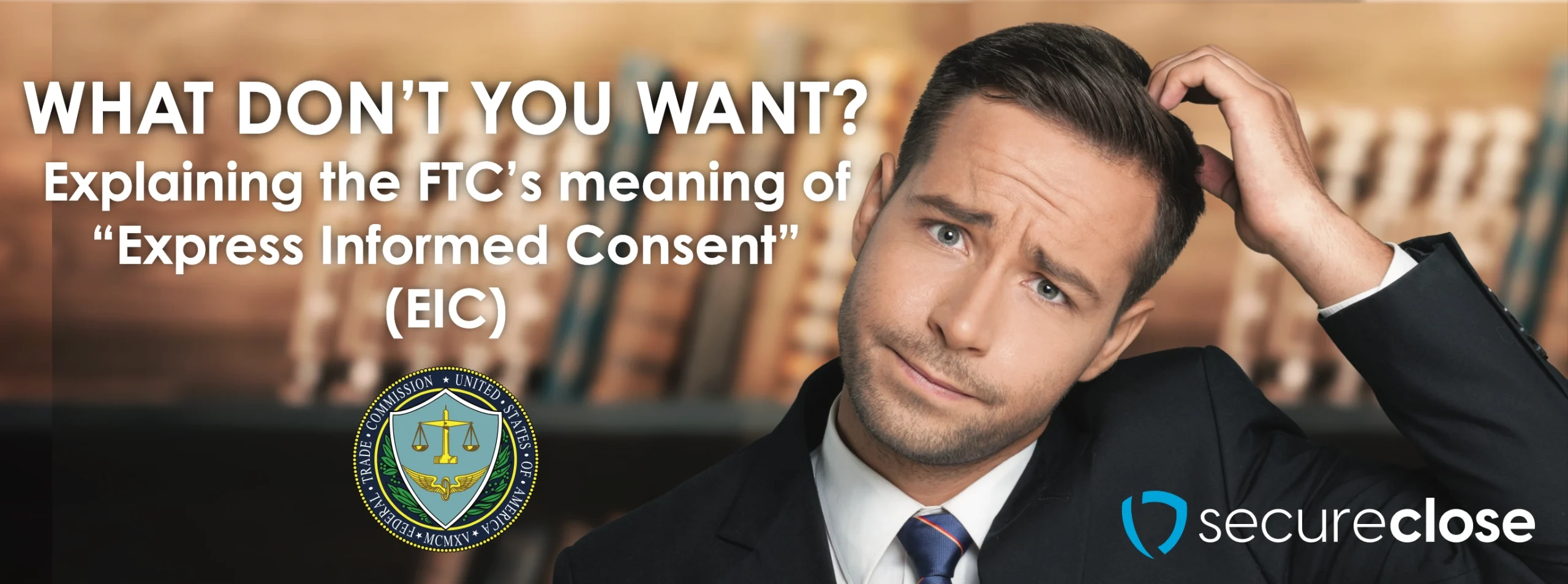
There continue to be several online conversations on whether the FTC’s CARS rule will go into effect or be overturned for not following its own codified rules. In the meantime, several enforcement actions by the FTC already include parts of the new rule – specifically, requiring dealers to obtain consumers’ express informed consent before finalizing the sale. But what is express informed consent? This question exists because most experts say the rule only gives an ambiguous definition of what constitutes express informed consent.
This idea of consent is at the heart of the FTC CARS rule, specifically express informed consent or EIC. You will see a lot of hand-wringing when you ask any compliance professional “What is express informed consent?” The reason is that the FTC has not defined what express informed consent is in full, only what it is not. They have clarified and outlined some of the content and actions such as:
“An affirmative act communicating unambiguous assent to be charged, made after receiving and in close proximity to a Clear and Conspicuous disclosure, in writing, and also orally for in-person transactions, of the following:
- What the charge is for?
- The amount of the charge, including, if the charge is for a product or service, all fees and costs to be charged to the consumer over the period of repayment, with and without the product or service.”
Doesn’t the above exist in current documents and closing forms, for every dealer all over the country right now? Where it gets a little confusing is the second part of the definition which explains what express informed consent is not:
- A signed or initialed document, by itself;
- Prechecked boxes; or
- An agreement obtained through any practice designed or manipulated with the substantial effect of subverting or impairing user autonomy, decision-making, or choice.
This way of defining something by stating what it is not is known as a “negative definition.” A “negative definition” is not a method that directly states the attributes or characteristics of a concept. Instead, it clarifies what the subject is by listing what it does not encompass. For example, to use a car analogy, if I a consumer tells you, “I do not want to buy a foreign vehicle, I don’t want an SUV or Van and I don’t want anything over 100k miles” would you be able to sell them the right car knowing only what they don’t want?
At SecureClose we understand that the FTC is using a “negative definition” so as not to be boxed in. Pushing the industry to come up with its own definition of what express informed consent is. By combining simple, consistent programmable explanations of the product’s terms and costs, along with comprehensive audio and video capture of the consumer reviewing and signing the document, SecureClose is the solution to Express Informed Consent.
If you want more information on how SecureClose can help keep you compliant, and lower risk and costs, request a demo at sales@secureclose.net or call (855) 496-9335 and schedule today.





